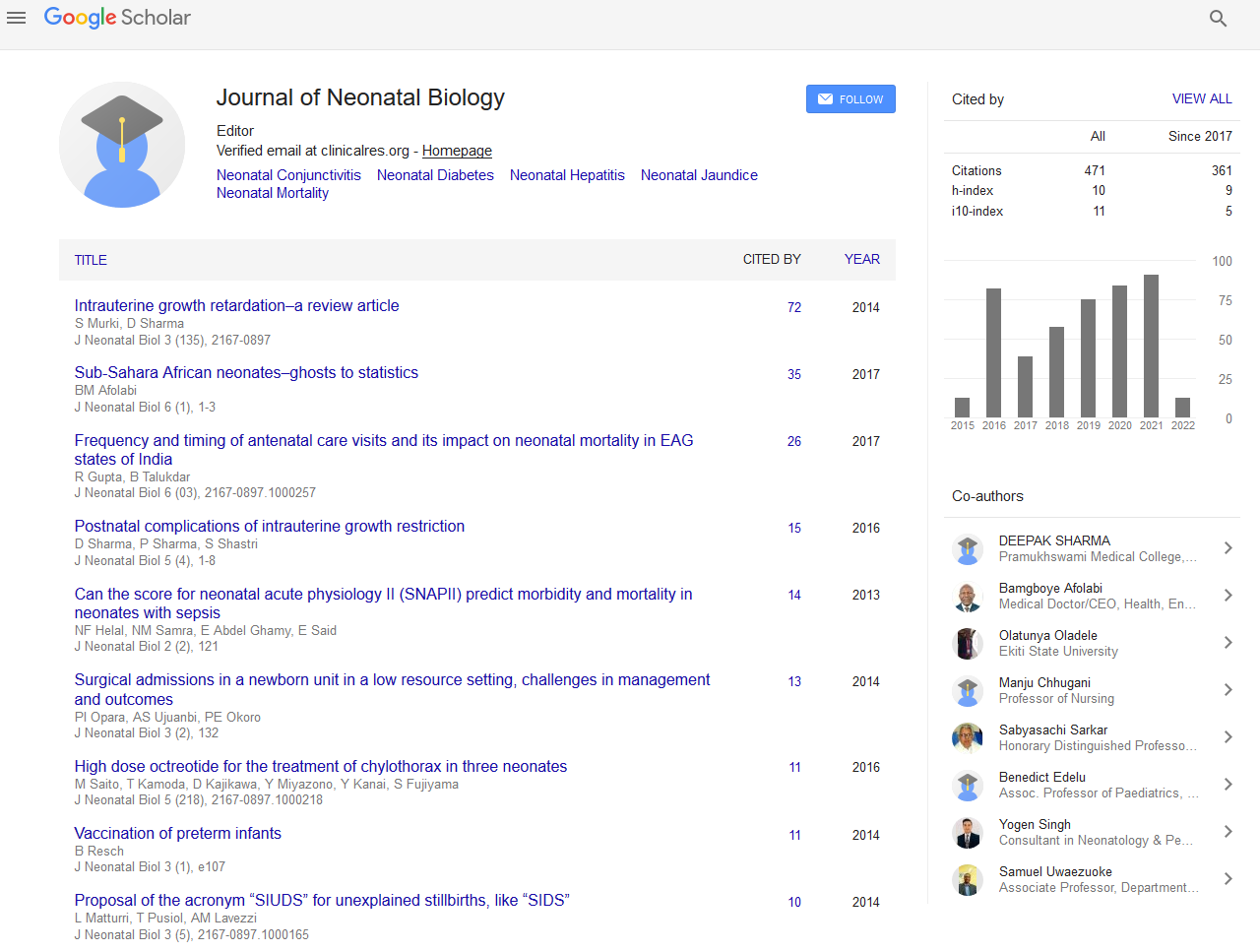PMC/PubMed Indexed Articles
Indexed In
- Genamics JournalSeek
- RefSeek
- Hamdard University
- EBSCO A-Z
- OCLC- WorldCat
- Publons
- Geneva Foundation for Medical Education and Research
- Euro Pub
- Google Scholar
Useful Links
Share This Page
Journal Flyer

Open Access Journals
- Agri and Aquaculture
- Biochemistry
- Bioinformatics & Systems Biology
- Business & Management
- Chemistry
- Clinical Sciences
- Engineering
- Food & Nutrition
- General Science
- Genetics & Molecular Biology
- Immunology & Microbiology
- Medical Sciences
- Neuroscience & Psychology
- Nursing & Health Care
- Pharmaceutical Sciences
Abstract
Listeria monocytogenes Infection Reduces the Functionality of Human Choriocarcinoma JEG-3 Cells
Keith P Poulsen, Nancy G Faith, Thaddeus G Golos, Maria Giakoumopoulos and Charles J Czuprynski
Listeria monocytogenes is a facultative intracellular bacterium associated with foodborne disease outbreaks. Pregnant women, and their fetuses, are at particular risk for adverse outcomes to pregnancy. The mechanisms by which L. monocytogenes infection disrupts homeostasis in the placenta are incompletely understood. In this study, we tested the ability of L. monocytogenes to invade, multiply within, and alter the function of JEG-3 cell monolayers. The effects of L. monocytogenes infection on JEG-3 cell monolayer integrity, cell function, cell metabolic activity, and cell death were measured with Transepithelial Electrical Resistance (TEER), Alamar Blue reduction, and LDH release, respectively. L. monocytogenes readily infected JEG-3 cells and multiplied to a peak number of intracellular organisms at 10 hours post-infection. L. monocytogenes infection decreased TEER of the JEG-3 monolayer as compared to uninfected JEG-3 cell monolayers. Infected JEG-3 cells also displayed decreased invasion through a fibronectin layer. Finally, L. monocytogenes infection decreased JEG-3 cell metabolic activity and caused cell death as measured by LDH release. These findings suggest that L. monocytogenes infection of extravillous trophoblast cells may compromise trophoblast functions required by the fetoplacental unit for maternal vascular remodeling and pregnancy success, rather than the trophoblast cells simply serving as a point of entry to infect the fetus.


